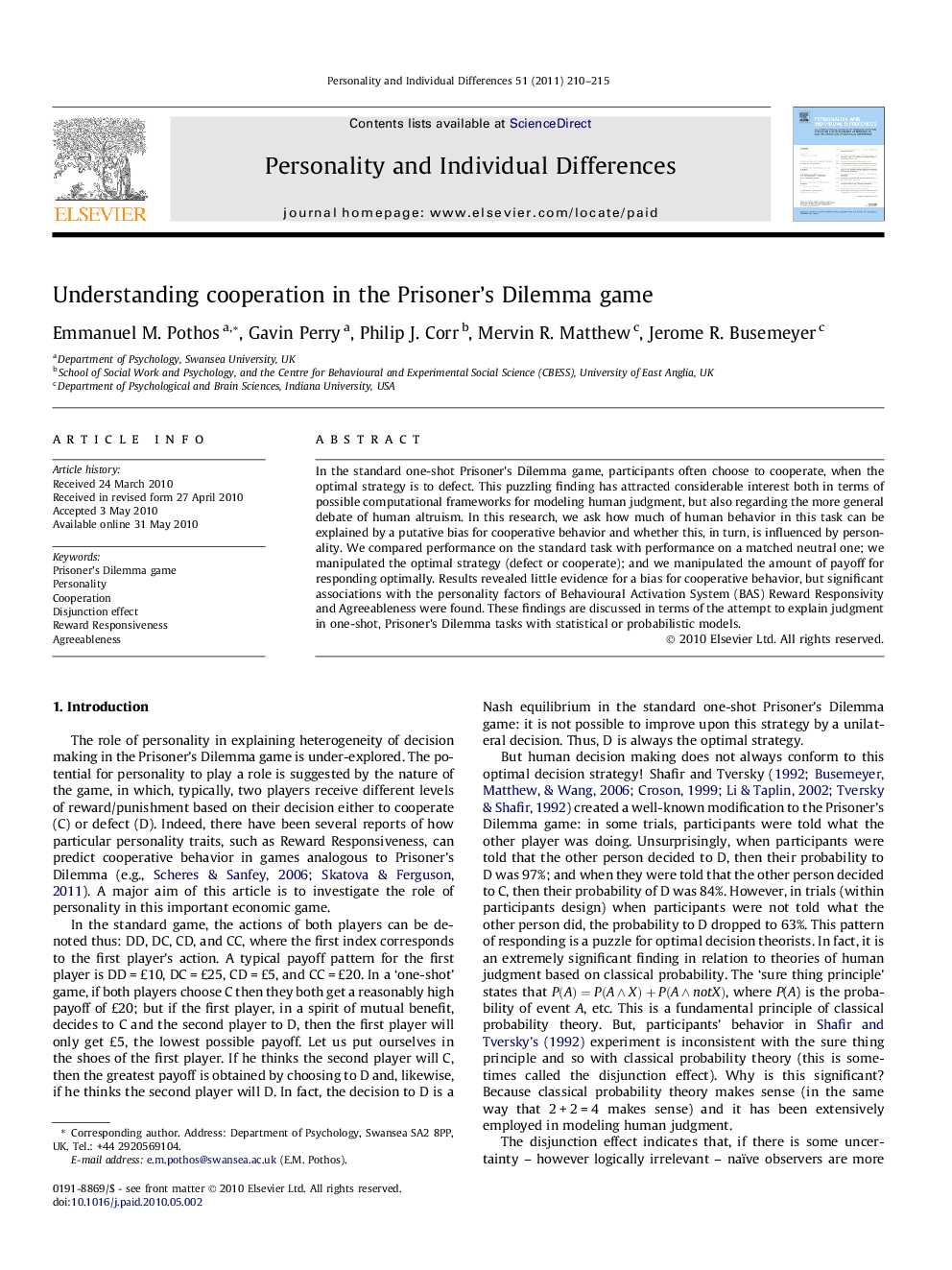| Article ID | Journal | Published Year | Pages | File Type |
|---|---|---|---|---|
| 10440627 | Personality and Individual Differences | 2011 | 6 Pages |
Abstract
In the standard one-shot Prisoner's Dilemma game, participants often choose to cooperate, when the optimal strategy is to defect. This puzzling finding has attracted considerable interest both in terms of possible computational frameworks for modeling human judgment, but also regarding the more general debate of human altruism. In this research, we ask how much of human behavior in this task can be explained by a putative bias for cooperative behavior and whether this, in turn, is influenced by personality. We compared performance on the standard task with performance on a matched neutral one; we manipulated the optimal strategy (defect or cooperate); and we manipulated the amount of payoff for responding optimally. Results revealed little evidence for a bias for cooperative behavior, but significant associations with the personality factors of Behavioural Activation System (BAS) Reward Responsivity and Agreeableness were found. These findings are discussed in terms of the attempt to explain judgment in one-shot, Prisoner's Dilemma tasks with statistical or probabilistic models.
Keywords
Related Topics
Life Sciences
Neuroscience
Behavioral Neuroscience
Authors
Emmanuel M. Pothos, Gavin Perry, Philip J. Corr, Mervin R. Matthew, Jerome R. Busemeyer,
